Updated
Ronald Lowe Jr., acting Secret Service director, and Paul Abbate, FBI deputy director, testify on security failures leading to the Trump rally shooting.
During a joint hearing of the Senate Homeland Security and Judiciary Committees, acting Secret Service Director Ronald Rowe Jr. showed visuals of the rooftop of where the would-be assassin was situated when he tried to kill former President Donald Trump on July 13.
The first visual showed the rooftop of the AGR International warehouse at the rally site in Butler, Pennsylvania, and where the shooter fired his weapon. The second was a reenactment by a Secret Service agent of the shooter on the rooftop that included a five-inch rise where “the assailant would have had to present” his weapon in order to fire it.
The third visual showed the rooftop from where the counter-sniper team was located.
Agents that are found to be at fault for not preventing the assassination attempt of former President Trump on July 13 will be held accountable, said Acting Secret Service Director Ronald Rowe Jr.
“If this investigation reveals that Secret Service employees violated agency protocols, those employees will be held accountable to our disciplinary process,” said Mr. Rowe during a joint hearing of the Senate Homeland Security and Judiciary Committees.
This process could include being terminated.
A social media account that contains anti-Semitic and anti-immigration rhetoric might belong to the man who shot former President Donald Trump on July 13, according to FBI Deputy Director Paul Abbate.
“Something just very recently uncovered that I want to share is a social media account, which is believed to be associated with this with the shooter,” Mr. Abbate said during a joint hearing of the Senate Homeland Security and Judiciary Committees.
“In about the 2019–2020 timeframe there were over 700 comments posted from this account. Some of these comments, if ultimately attributable to the shooter, appear to reflect anti-Semitic and anti-immigration themes to espouse political violence and are described as extreme in nature,” he said.
FBI Deputy Director Paul Abbate provided a complete timeline of events leading up to the moment former President Donald Trump was shot by a would-be assassin.
According to the FBI, Thomas Matthew Crooks, the suspected shooter, registered to attend the former president’s Pennsylvania rally on July 6—three days after it was announced. That same day, he performed an online search for details surrounding President John F. Kennedy’s assassination.
The next day, on July 7, Mr. Crooks visited the rally site in Butler for about 20 minutes, allegedly for “reconnaissance” purposes. On July 12, he visited Clairton Sportsmen’s Club, a local shooting range, where he returned the next morning—the day of the rally—to practice shooting.
Neither the Secret Service nor former President Trump’s security detail knew there was a man with a rifle on a nearby roof at the July 13 rally in Butler, Pennsylvania, according to Acting Secret Service Director Ronald Rowe Jr.
“I am prepared to provide an overview of the security planning leading up to and during the July 13 attack,” he said in his opening statement before a joint hearing of the Senate Homeland Security and Judiciary Committees.
“However, I would like to point out that based on what I know right now, Neither the Secret Service counter-sniper teams, nor members of the former president’s security detail had any knowledge that there was a man on the roof” of the AGR International warehouse.
Acting Secret Service Director Ronald Rowe Jr. said shame was his primary feeling upon visiting the site where former President Donald Trump was nearly assassinated.
“What I saw made me ashamed. As a career law enforcement officer and a 25-year veteran with the Secret Service, I cannot defend why that roof was not better secured,” Mr. Rowe testified at the joint hearing of the Senate Judiciary and Homeland Security and Governmental Affairs committees.
Mr. Rowe was promoted from his previous role of deputy director to replace former Director Kimberly Cheatle following her resignation last week. In the time since, he said he has stepped up security protocols for events such as the former president’s rally, including directing the use of drones to help detect potential threats, maximizing security personnel, and ensuring the expeditious approval of protective detail requests.
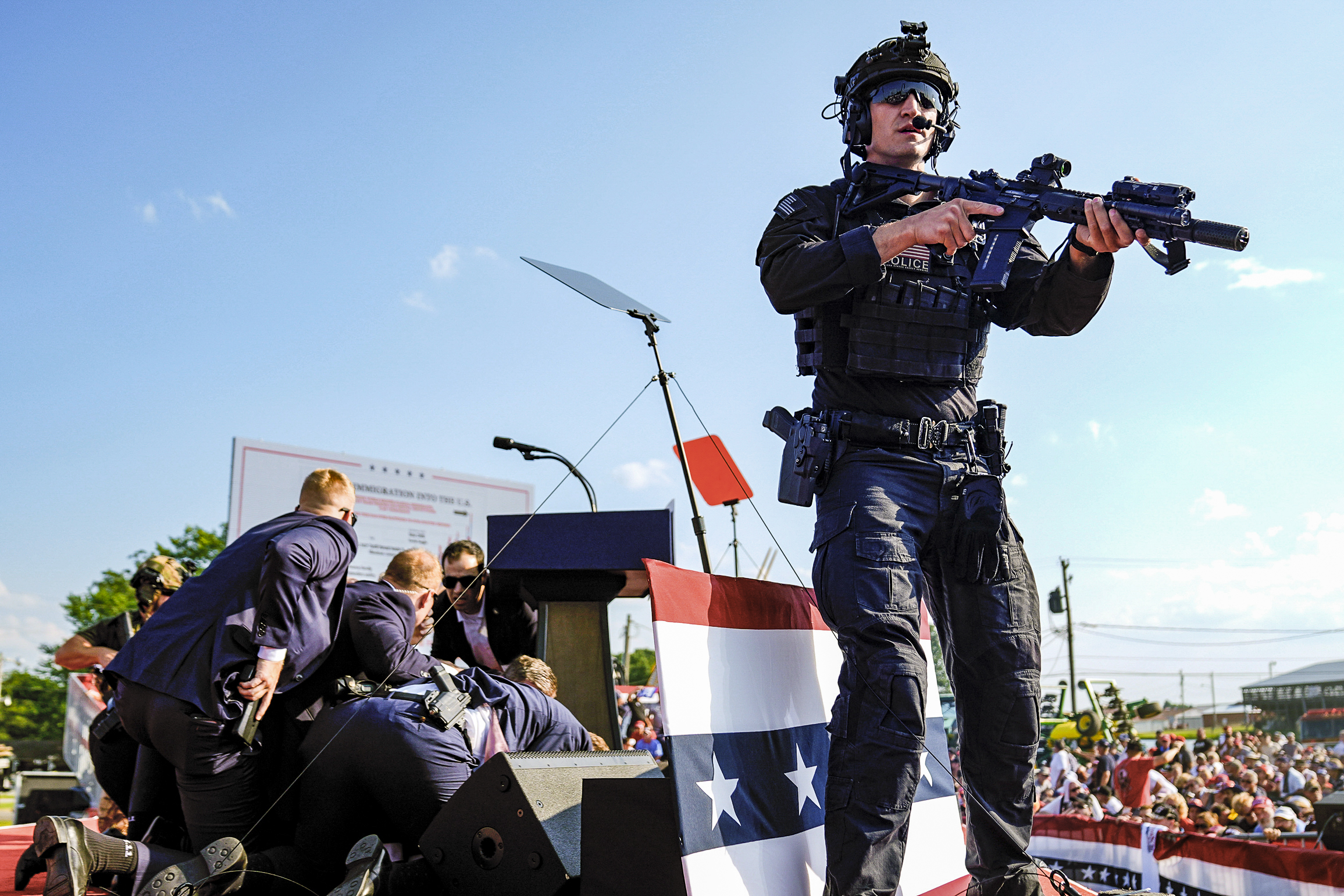
The Secret Service is making changes in the wake of the assassination attempt against former President Donald Trump, the agency’s new acting director announced on July 30.
Acting Director Ronald Rowe Jr. said that he traveled to the site of the July 13 rally in Butler, Pennsylvania, where the former president was shot by a man who fired from the roof of the nearby AGR building.
“What I saw made me ashamed,” Mr. Rowe told two U.S. Senate committees on Capitol Hill. “As a career law enforcement officer, and a twenty-five-year veteran with the Secret Service, I cannot defend why that roof was not better secured.”
Local law enforcement in Butler, Pennsylvania, informed Sen. Rand Paul (R-Ky.) that they have not been contacted by U.S. Secret Service personnel since the attempted assassination of former President Donald Trump on July 13.
Mr. Paul, the top Republican on the Senate Homeland Security and Governmental Affairs Committee, traveled with other lawmakers to the scene of the shooting over the weekend.
During that trip, he and his team were alarmed to learn “that no one from Secret Service has talked to them since the shooting,” the senator said.
In his opening statement, Senate Homeland Security Committee Chairman Gary Peters (D-Mich.) said there is still more to learn about the security failure surrounding the assassination attempt of former President Donald Trump, the GOP presidential nominee, at a campaign rally in Butler, Pennsylvania, on July 13.
“There are still many unanswered questions,” said Mr. Peters. “We need additional information about the Secret Service’s advanced planning efforts.”
This hearing is being held by the Senate Homeland Security and Judiciary Committees with the witnesses being Acting Secret Service Director Ronald Rowe Jr. and FBI Deputy Director Paul Abbate. Mr. Rowe took over the Secret Service after the July 23 resignation of Kimberly Cheatle.
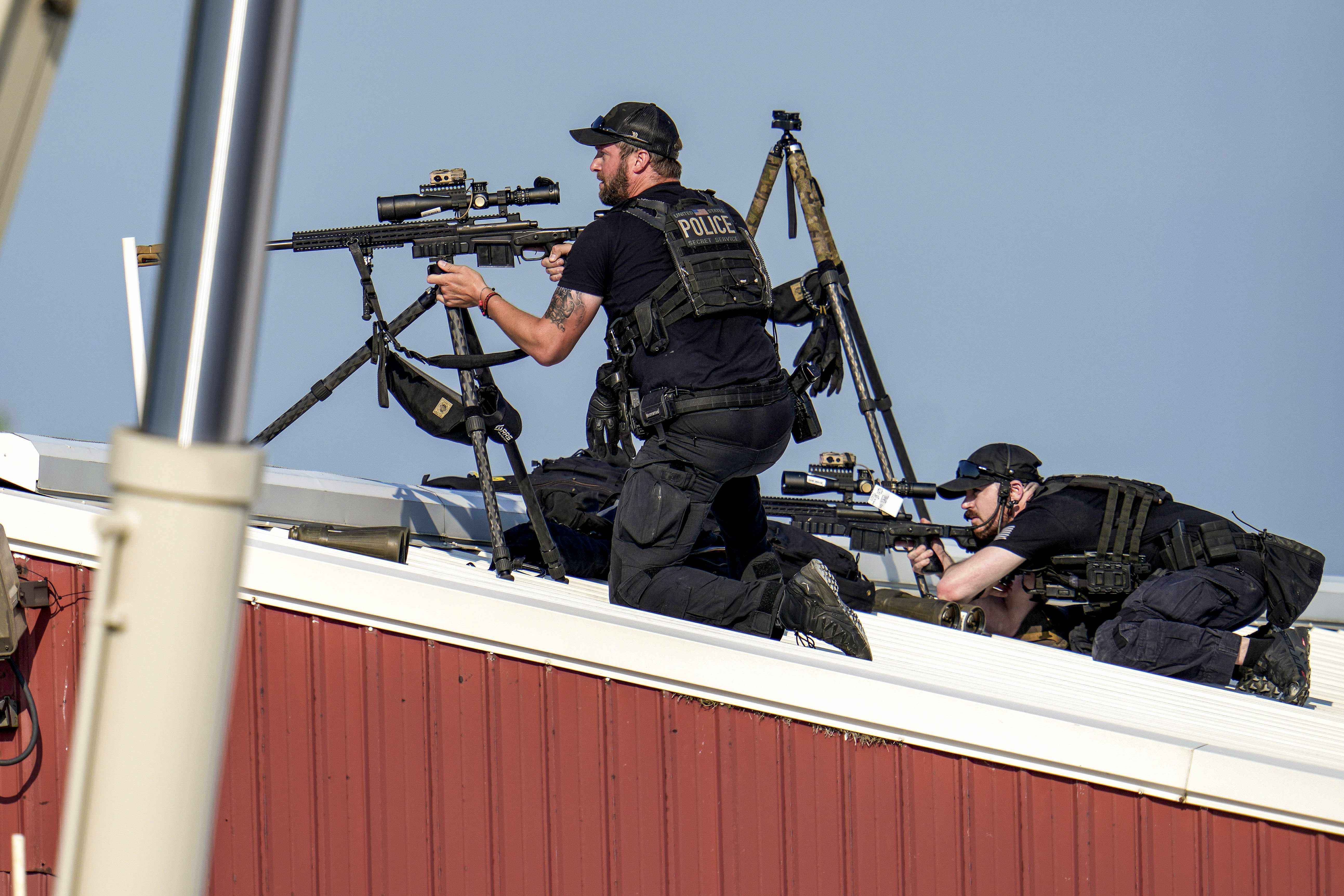
Text messages reveal that police snipers noticed Thomas Matthew Crooks at the site of former President Donald Trump’s July 13 rally in Butler, Pennsylvania, nearly two hours before the assassination attempt on Mr. Trump.
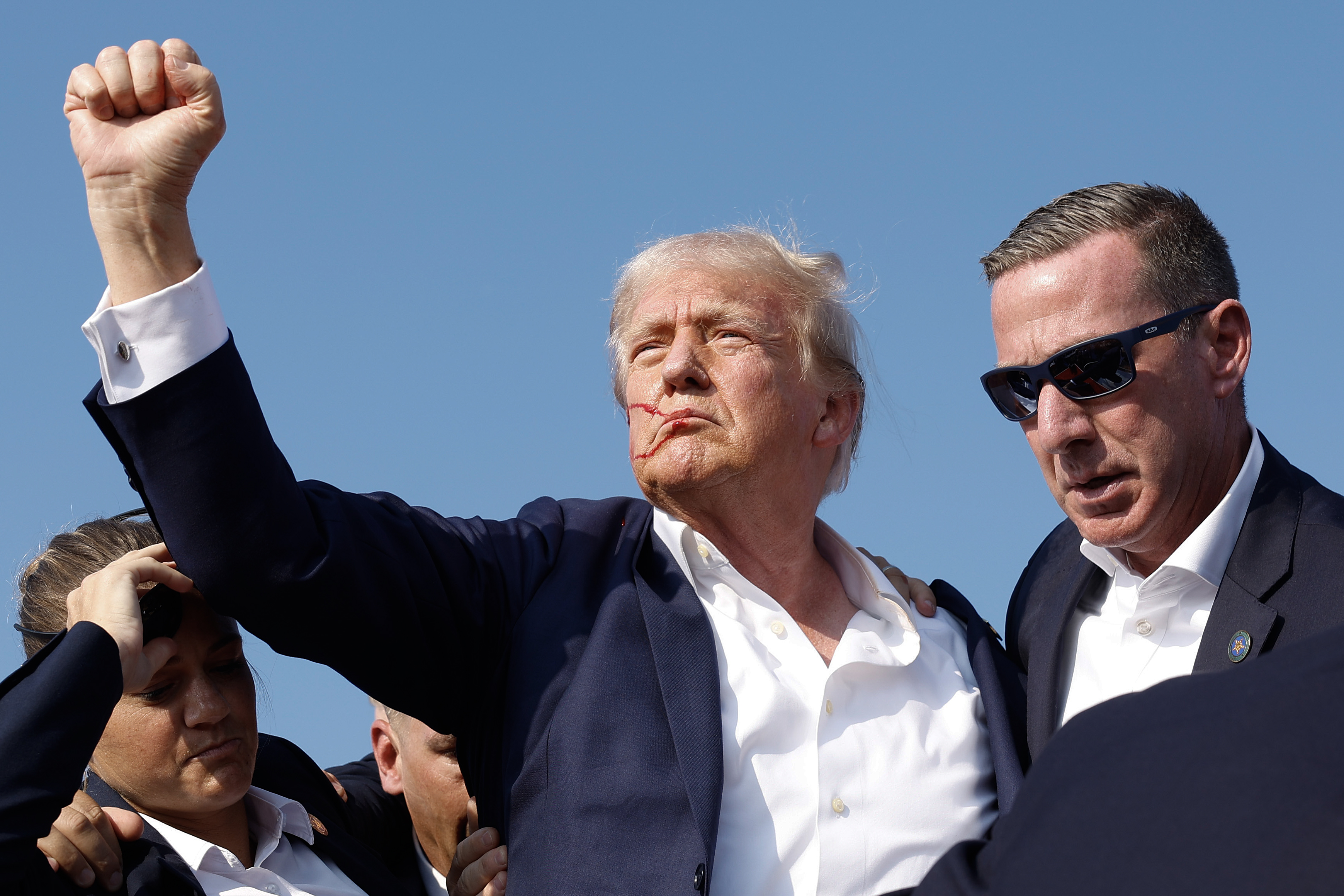
Military veterans and former prosecutors are among the members of a special U.S. House of Representatives task force that plans to probe the attempt to assassinate former President Donald Trump.
Rep. Mark Green (R-Tenn.), a former U.S. Army major and and emergency room physician; Rep. Michael Waltz (R-Fla.) who served in the U.S. Army Special Forces; and Rep. Glenn Ivey (D-Md.), a former prosecutor, are three of the members tapped by House Speaker Mike Johnson (R-La.) and House Minority Leader Hakeem Jeffries (D-N.Y.) to serve on the body, the leaders announced on July 29.
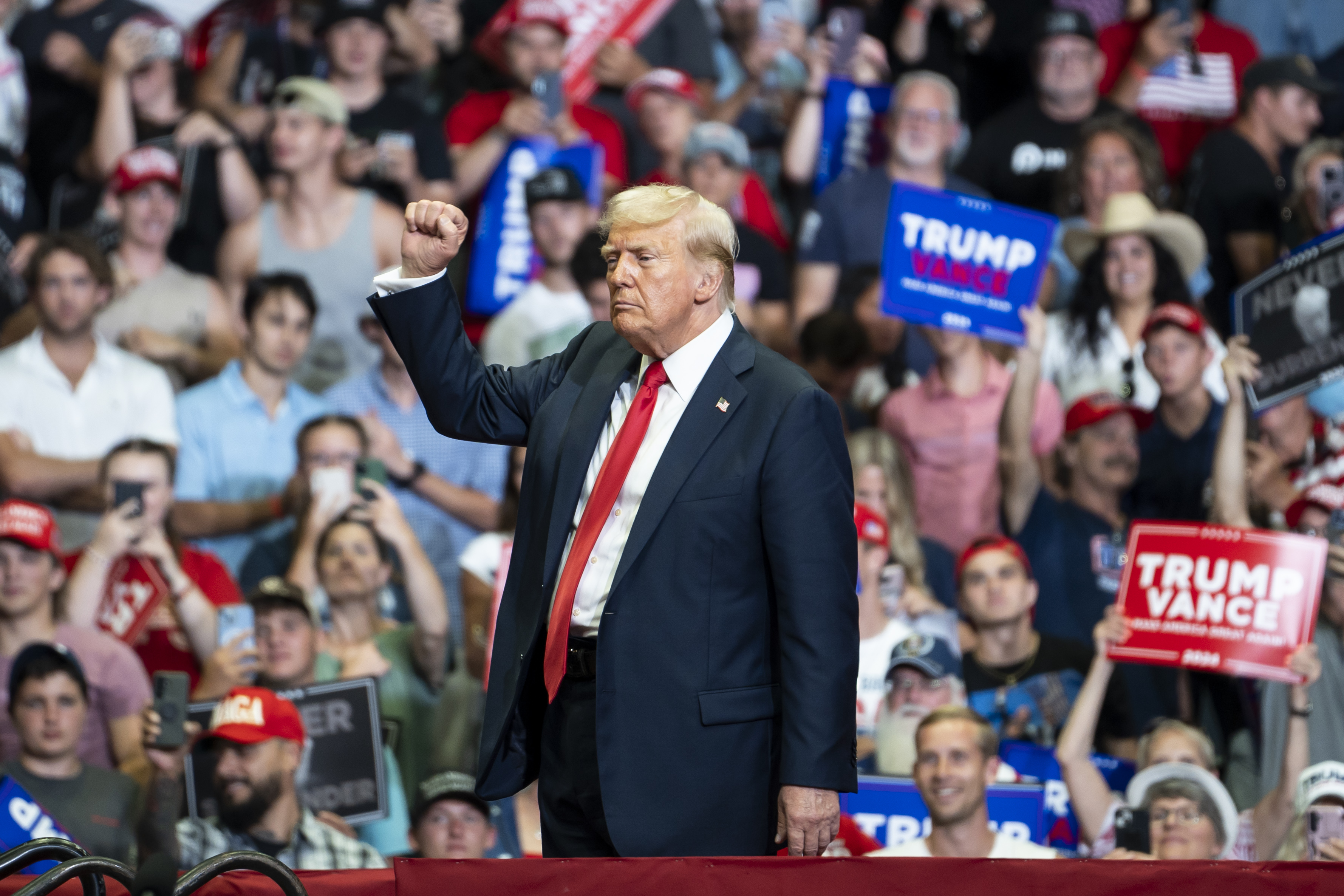
Former President Donald Trump will sit for a voluntary interview with the FBI regarding the probe into the assassination attempt against him at a campaign rally earlier this month, according to a special agent.
“We want to get his perspective on what he observed,” Kevin Rojek, the special agent in charge of the FBI’s Pittsburgh field office, said in a call with reporters on July 29.
While the agency said it hasn’t yet determined the motive of the would-be Trump assassin, his actions showed extensive planning ahead of the July 13 rally, Mr. Rojek told reporters.
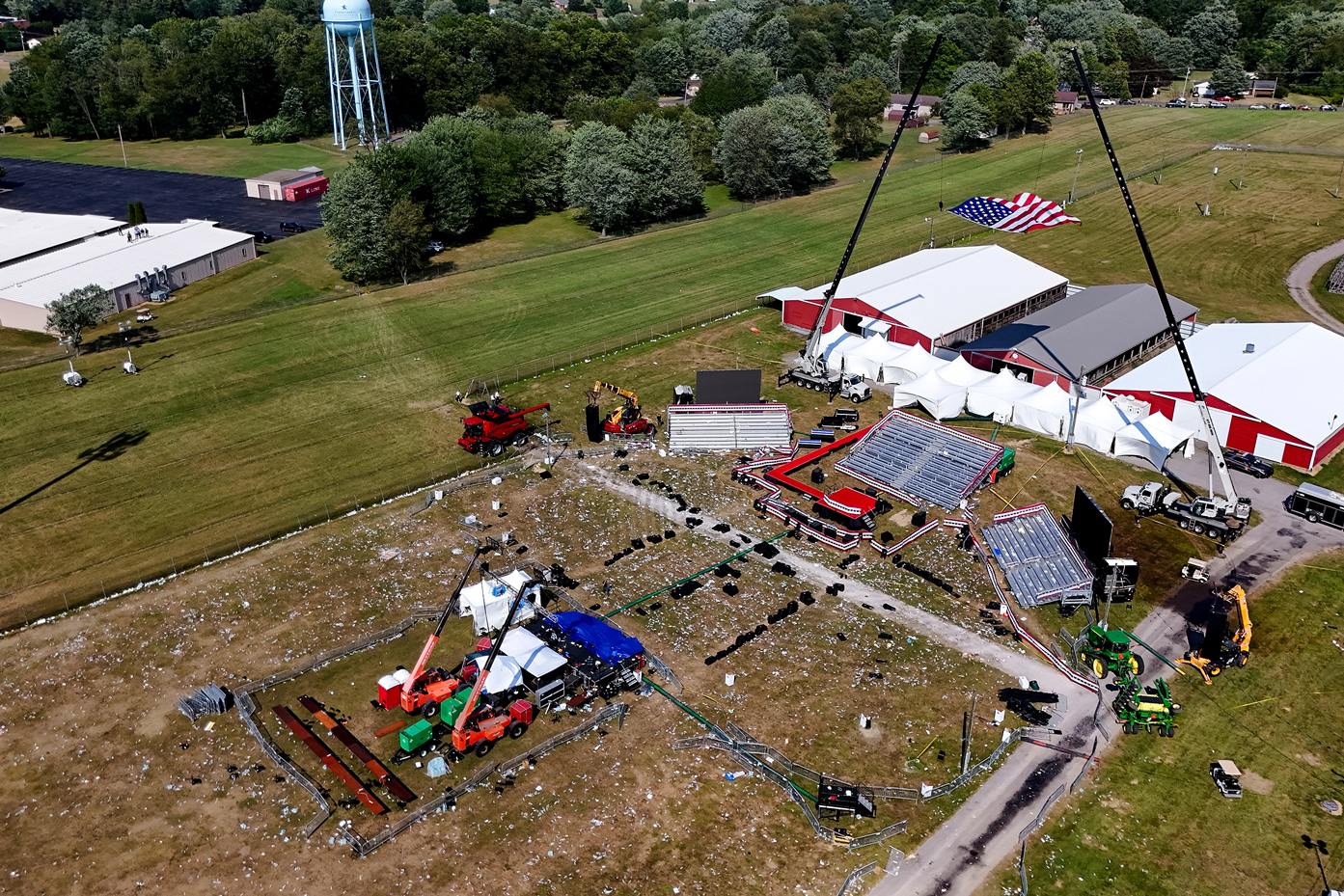
Around two weeks after the failed attempt on former President Donald Trump’s life, new details are emerging about the shooting and the days leading up to it.
The perpetrator, Thomas Matthew Crooks, who authorities say acted alone, was fatally shot within seconds of opening fire.
According to FBI Director Christopher Wray, at least 700 FBI agents are involved in the investigation into the matter—the first attempted assassination of a U.S. president in more than four decades. Two other reviews into the Secret Service’s security failure are ongoing.
Original News Source Link – Epoch Times
Running For Office? Conservative Campaign Consulting – Election Day Strategies!
